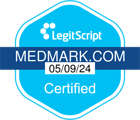Understanding the Impact of Hydrocodone Addiction
The growing concern over prescription opioid use has escalated into a public health crisis. Grasping the consequences of long-term hydrocodone use is crucial. Hydrocodone, like other opioids, may lead to dependency, where the need for the next dose overshadows potential side effects. Despite adverse reactions, the potent nature of opioids stands out compared to other prescriptions.
Interestingly, opioids are prescribed more frequently than stimulants such as Adderall. Addressing this issue requires a supportive, non-judgmental approach to help individuals.
Hydrocodone Side Effects
When you are living with opioid use disorder, including hydrocodone, it’s important to be aware of various symptoms that may affect your well-being. Recognizing these symptoms is a crucial step in your journey towards recovery. Common side effects of hydrocodone use can include:
- Fatigue and drowsiness
- Anxiety or a general sense of uneasiness
- Dizziness
- Constipation
- Headaches
- Nausea
- Itchiness
- Muscle aches
- Insomnia
- Nightmares
In some instances, hydrocodone side effects can escalate to more severe conditions, such as an irregular or slow heartbeat, vomiting, and difficulty urinating. Prolonged constipation might also lead to bowel obstruction, a serious condition requiring medical intervention.
Long-Term Side Effects of Hydrocodone
When a person uses hydrocodone over an extended period, their body commonly builds a tolerance to the medication. This means that over time, they might need to take higher doses to achieve the same level of pain relief they initially experienced. Additionally, the initial feelings of euphoria that some individuals encounter when first using hydrocodone may diminish with prolonged use. It’s not uncommon for individuals in this situation to focus on obtaining more of the medication, even when it becomes challenging to get a prescription. This shift in focus can impact various aspects of life, including family, work, and health.
If you’re living with someone and you’re concerned they might be experiencing challenges with hydrocodone addiction, it’s important to be aware of certain signs. These can include:
- Taking More Than Prescribed: Not following the prescribed guidelines and taking larger amounts of hydrocodone.
- Combining with Alcohol: Using alcohol in conjunction with hydrocodone to enhance its effects.
- Mixing with Other Medications: Take hydrocodone along with other medications, such as benzodiazepines, in an attempt to intensify the effects.
- Continued Use After Medical Need: Persisting in using hydrocodone even when the initial medical reason for its use, such as a healed injury, has been resolved.
Recognizing these signs can be a significant step in supporting their journey towards seeking appropriate care and treatment. Please remember that these observations should be approached with understanding and empathy, keeping in mind that help and support are available for those who may need it.
Transition Risks in Prescription Opioid Use
In addressing the public health challenge of opioid use, it’s important to be aware of the potential risks associated with prolonged hydrocodone use, which can sometimes lead to a transition to other substances like heroin. Educational research, including studies by institutions like the National Institutes of Health, indicates varying levels of prescription opioid use among different age groups. For instance, a study observed that the usage of medications like Vicodin and OxyContin among students increased from the eighth grade to the twelfth grade. This data underscores the importance of understanding the potential progression and seeking early intervention.
Legal Risks of Hydrocodone Addiction

The broader implications of extended hydrocodone use extend beyond individual health to societal aspects, including treatment and legal considerations. In Texas, for example, the legal consequences for unauthorized hydrocodone possession have evolved over time. What used to be classified as a misdemeanor under certain conditions is now considered a felony. This shift underscores the seriousness with which hydrocodone possession is viewed legally.
The legal system may impose various penalties for such offenses, ranging from fines and probation to potential jail time. These legal repercussions can have significant financial and personal costs. For instance, a DUI charge alone can be financially burdensome, and costs can escalate with more serious charges like hydrocodone possession.
It’s important to be aware of these legal risks and to understand the support systems available for individuals navigating challenges with hydrocodone addiction. Seeking early intervention and treatment can be crucial steps in addressing these challenges in a constructive and supportive manner.
Start Your Recovery Today with MedMark
The impact of extended hydrocodone use encompasses a range of considerations, emphasizing the importance of supportive treatment options. Medication-assisted treatment (MAT) is a notable approach in this regard. It uses specific medications to alleviate cravings and withdrawal symptoms, enhancing participation and effectiveness in treatment. This method is particularly beneficial when coupled with counseling and ongoing support.
MedMark Treatment Centers offer a personalized and empathetic approach to treatment. Understanding that each individual’s journey is unique, MedMark’s team is dedicated to providing care that meets your specific needs, helping you lead a more fulfilling life free from opioid use. In a non-judgmental and supportive environment, MedMark’s professionals are committed to delivering expert-level care. If you or someone you know is navigating the challenges of hydrocodone use, reaching out to MedMark Treatment Centers can be a transformative step towards positive change.



